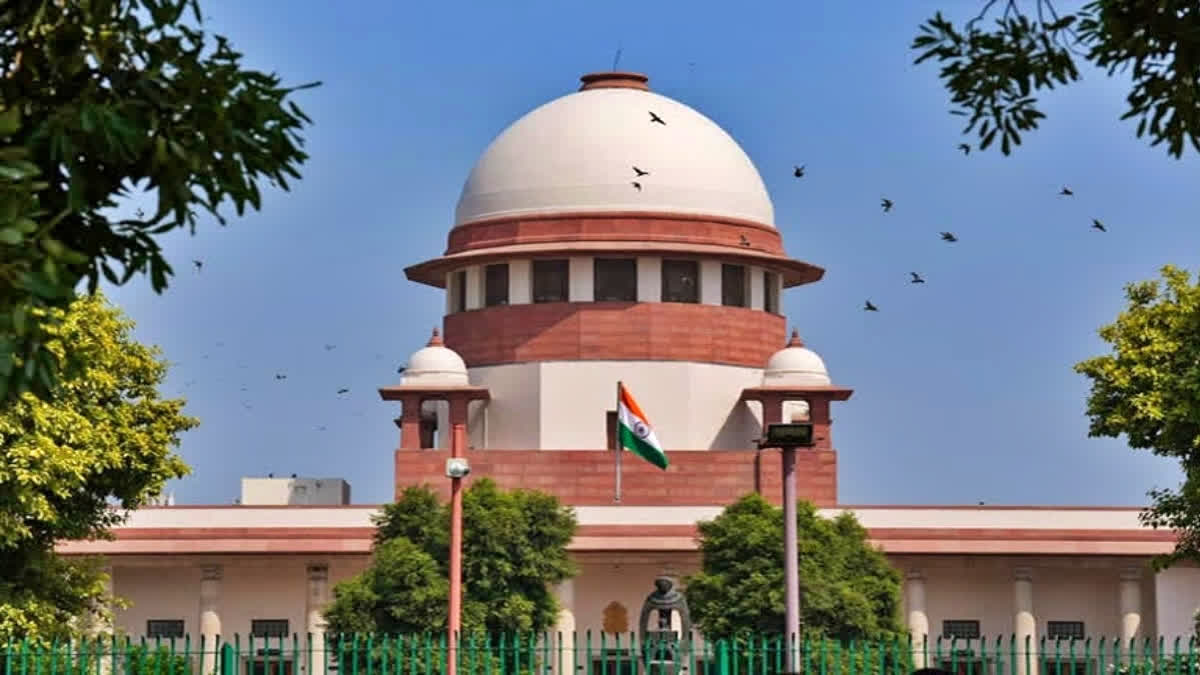New Delhi: The Supreme Court has said a court of law cannot declare the reputation of a person based upon its own opinion merely because a person is educated and said to be God-fearing and that by itself will not create a positive reputation.
A bench comprising justices M.M. Sundresh and J.B. Pardiwala noted that a reputation has to be seen from the point of view of an identifiable group while the character is what a person really is. The bench said character is to be formed while reputation is to be acquired and character may lead to the formation of one’s reputation but both are distinct and different.
“Reputation thus forms part of internal facts and therefore it is required to be proved in the form of the opinion of persons who form it accordingly. When reputation is to be taken as a relevant fact, its evidentiary value becomes restrictive and limited. It is indeed a weak piece of evidence when it becomes relatable to a fact in issue”, said Justice Sundresh, who authored the judgment for the bench.
The apex court judgment was dealing with a challenge to a conviction for life imprisonment imposed by the Himachal Pradesh High Court. The petitioner Harvinder Singh was convicted of murder and attempt to rape. The high court had reversed the order of acquittal by the trial court. The high court primarily relied on the statement of a witness, who was in the court’s view an educated and God-fearing person. Therefore, the court accepted his testimony.
The apex court, in a judgment delivered on October 13, said: “A court of law cannot declare the reputation of a person based upon its own opinion merely because a person is educated and said to be God-fearing, that by itself will not create a positive reputation”.
The bench noted that character and reputation do have an element of interconnectivity and reputation is predicated on the general traits of character and in other words, character may be subsumed into reputation. “Courts are not expected to get carried away by the mere background of a person especially while acting as an appellate forum, when his conduct, being a relevant fact, creates serious doubt. In other words, the conduct of a witness under Section 8 of the Evidence Act, is a relevant fact to decide, determine and prove the reputation of a witness”, said the bench.
The bench stressed that when the conduct indicates that it is unnatural from the perspective of normal human behaviour, the so-called reputation takes a back seat.
The apex court said the trial court has given substantial reasons for arriving at its conclusion and one has to keep in mind that it is the prosecution which has to prove the charges beyond reasonable doubt. “Apart from the non-availability of the fingerprint report, the non-examination of the witnesses, as noted by the trial court, would go to the root of the very case of the prosecution”, said the bench.
The bench said the high court was persuaded by the homicidal death of the deceased while ignoring multiple findings rendered by the trial court including the fact that the house of the deceased was surrounded by numerous other houses.
The bench said, “We are constrained to come to the conclusion that the appellant is entitled to the benefit of doubt as the prosecution has not proved its case beyond reasonable doubt. The impugned order passed by the High Court is set aside and resultantly, the order of acquittal passed by the trial court stands restored”.
The incident occurred on June 17, 2003. It was alleged that Singh and other accused (since deceased) broke open the house of the deceased and her husband, due to previous enmity and when she made her entry into the house, she was raped and murdered. The supplementary charge sheet said the murder took place as deceased was resisting rape and tried to attack the accused with a sword, recovered from the place of occurrence, which was actually used by them.
Also read: 'Marriage still pious, spiritual life net': SC refuses to grant divorce to octogenarian couple




